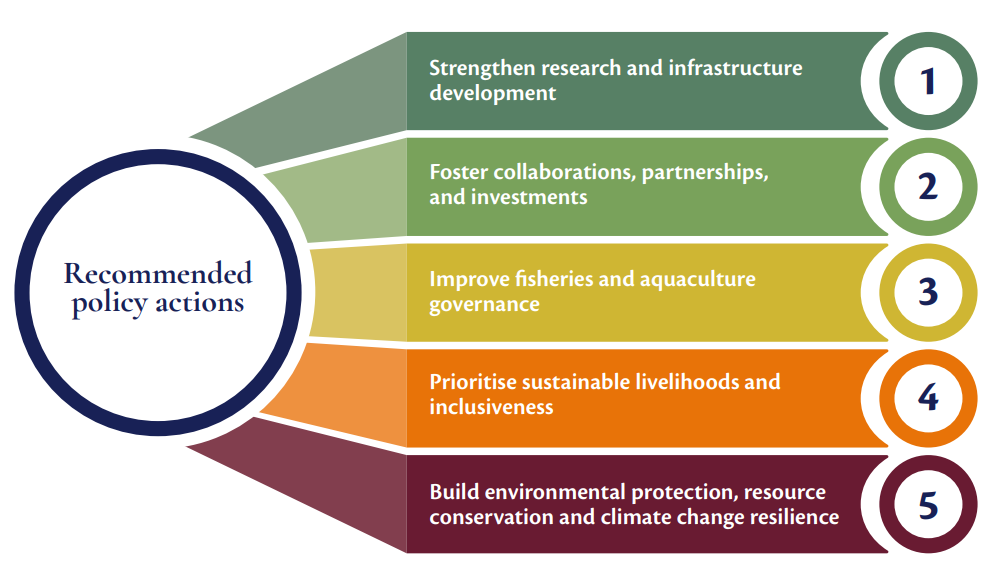Current food systems fail to recognise the diversity of aquatic foods and their potential to contribute to sustainable healthy diets and their potential to address the burden of malnutrition. Deficiencies in micronutrients lead to one million premature deaths annually,and dietary inadequacies are one of the most pressing reasons for people experiencing multiple nutrient deficiencies and subsequent morbidity and mortality. Aquatic foods can have very considerable potential in helping to fill this nutrient gap and improve diet quality, particularly in sub-Saharan Africa.
This policy brief makes a wide range of practical, realistic and pragmatic game-changing recommendations to address the critical
challenges facing the fisheries and aquaculture sector (aquatic food systems) in Nigeria. The brief is an outcome of the National
Dialogue on Transformation and Future of Aquatic Food Systems in Nigeria held in Abuja on 8 July, 2021. This dialogue was part
of the national programme of activities which contributed to Nigeria’s participation in the UN Food Systems Summit (UNFSS).
The production of aquatic foods in Nigeria currently contributes about 30% to total national domestic fish production. However,
it has the potential to grow three-fold and transform the country from a net fish importing country to a self-sufficient and fish
exporting country, thus earning substantial foreign exchange.
